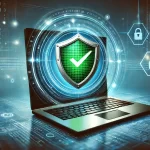Your Guide to Enhanced Online Security in a Connected World
Table of Contents
- Introduction
- History and Background
- Core Concepts and Principles
- Current Trends and Developments
- Applications and Implications
- Challenges and Solutions
- Future Prospects
- Additional Considerations: Free vs. Paid VPNs
- Expert Tips for Selecting the Right VPN
- Case Studies and Examples
- Frequently Asked Questions (FAQs)
- Conclusion
1. Introduction
The digital world is a double-edged sword. While it has revolutionized how we communicate, work, and entertain ourselves, it has also exposed us to numerous vulnerabilities. Every transaction, email, or click online can potentially be intercepted by cybercriminals. Cyberattacks have grown not only in number but in sophistication, threatening the security of individuals, businesses, and even governments.
Among the tools available to counter such threats, Virtual Private Networks (VPNs) stand out as essential. Whether you are an individual seeking privacy or a business protecting sensitive data, a VPN creates a secure, encrypted tunnel for your online activities. This ensures your information is safe from prying eyes.
However, not all VPNs are created equal. To maximize your protection, choosing the right VPN is critical. This guide aims to arm you with the knowledge to make an informed decision that aligns with your specific needs, empowering you to navigate the internet safely and confidently.
2. History and Background
The origins of VPN technology date back to the 1990s when businesses recognized the need for secure communications for remote employees. Microsoft developed the first VPN protocol, PPTP (Point-to-Point Tunneling Protocol), to address these challenges. PPTP allowed encrypted communication over the public internet, making it possible for employees to securely access corporate networks from anywhere.
Over the years, VPN technology evolved, driven by the growing demand for privacy in the face of increasing surveillance and cyber threats. High-profile incidents, such as the Edward Snowden revelations about global surveillance programs and major data breaches, fueled public awareness about the need for online privacy. By the early 2000s, VPNs were no longer confined to corporate use; they became widely accessible to individual users.
Modern VPNs have incorporated advanced encryption techniques, user-friendly interfaces, and global server networks, making them versatile tools for securing online activity. With continuous innovation, VPNs now offer features beyond basic security, such as bypassing geo-restrictions, blocking ads, and enhancing streaming experiences.
VPN technology was born out of necessity. As businesses expanded globally in the late 20th century, secure remote communication became a critical requirement. Early VPNs were designed primarily for corporate use, allowing employees to access company networks from anywhere in the world securely.
Over time, VPN technology evolved:
-
- 1990s: The emergence of PPTP, which allowed encrypted communication over the internet.
- 2000s: Individual users began adopting VPNs to maintain privacy amid growing concerns about government surveillance and corporate data collection.
- 2010s: With the rise of streaming platforms like Netflix, users began leveraging VPNs to bypass geo-restrictions.
- 2020s: Advanced protocols, enhanced encryption standards, and integrated cybersecurity tools have turned VPNs into versatile solutions for a wide range of users.
The global shift toward remote work during the COVID-19 pandemic underscored the importance of secure, private connections, accelerating VPN adoption across all demographics.
3. Core Concepts and Principles
A VPN operates on the principle of creating a secure, private tunnel between your device and a remote server managed by the VPN provider. This process involves several core components:
Encryption
Encryption ensures that your data is scrambled and cannot be read by unauthorized entities. Advanced Encryption Standard (AES) 256-bit is the gold standard, widely used by banks and government institutions to secure sensitive information.
Protocols
VPN protocols define how your data travels through the secure tunnel. Some of the most widely used protocols include:
-
-
- OpenVPN: Open-source, reliable, and highly secure, making it a favorite for most users.
- WireGuard: Lightweight and efficient, it offers faster connections while maintaining robust security.
- IKEv2/IPsec: Known for stability, particularly in mobile networks, and widely used for its speed and adaptability.
-
Server Locations
The choice of server affects your browsing experience. Connecting to a server in another country changes your IP address, granting access to region-specific content. A diverse server network ensures flexibility and speed.
No-Log Policies
A no-log policy guarantees that the VPN provider does not store your browsing activity. This is crucial for maintaining privacy, particularly for users in regions with restrictive internet laws.
Types of VPNs
VPNs are generally categorized into:
-
-
- Remote Access VPNs: Common for personal use, allowing secure connections between a user and the internet.
- Site-to-Site VPNs: Used by businesses to connect multiple offices securely.
- Mobile VPNs: Designed for devices that frequently switch between networks, ensuring continuous security.
-
VPN Kill Switch
A vital feature that disconnects your internet if the VPN connection drops, ensuring that your IP address and activity are never exposed.
Split Tunneling
This feature allows you to choose which traffic passes through the VPN and which connects directly to the internet, optimizing speed without compromising sensitive activities.
4. Current Trends and Developments
The VPN industry has rapidly evolved to address emerging threats and user needs. Several trends define the current landscape:
Advanced Protocols
Protocols like WireGuard are redefining VPN performance. Its speed and simplicity make it ideal for modern users, and providers like NordVPN have developed proprietary versions such as NordLynx to enhance security further.
RAM-Only Servers
Leading providers like ExpressVPN and CyberGhost are adopting RAM-only server technology. Unlike traditional servers, RAM-only servers automatically erase all data upon reboot, minimizing the risk of breaches.
Integrated Security Features
VPNs are becoming comprehensive security tools. Many now include:
-
-
- Ad blockers to enhance browsing experiences.
- Malware protection to block harmful websites.
- Dark web monitoring to alert users if their information appears in data breaches.
-
Obfuscated Servers
To bypass censorship in countries like China, VPNs offer obfuscation, which disguises VPN traffic as regular internet activity, ensuring access even in highly restricted regions.
5G Integration
The rollout of 5G networks is transforming VPN performance. Faster speeds mean users can maintain encrypted connections without noticeable slowdowns, even during bandwidth-heavy activities like gaming or video streaming.
Zero Trust Security
VPNs are increasingly integrated into broader cybersecurity frameworks that embrace the zero-trust model, requiring verification at every stage of data access.
5. Applications and Implications
For Individuals
A VPN protects your personal data from hackers, particularly when using public Wi-Fi. It also allows unrestricted access to streaming platforms and services by bypassing geo-restrictions.
For Businesses
For companies, VPNs are indispensable. They secure remote access for employees, protect confidential communications, and help meet data compliance regulations like GDPR.
Education
VPNs allow students and educators to access restricted academic resources or bypass government censorship in some countries.
Healthcare
Medical professionals use VPNs to safeguard sensitive patient data and comply with regulations like HIPAA.
For Freedom of Expression
Journalists, activists, and citizens in restrictive regimes use VPNs to bypass censorship, ensuring the free flow of information and communication.
Impact on Privacy
The growing adoption of VPNs underscores the global push for digital privacy. They empower users to regain control of their data in an era of mass surveillance and cyberattacks.
6. Challenges and Solutions
Performance Issues
Encryption can slow down internet speeds, frustrating users.
-
- Solution: Choose VPNs with optimized servers and modern protocols like WireGuard.
Trustworthiness of Providers
Some free VPNs compromise user data, selling it to third parties.
-
- Solution: Opt for paid VPNs with a transparent no-logs policy and independent security audits.
Legal and Regulatory Barriers
In countries like China and Russia, VPN usage is restricted.
-
- Solution: Use VPNs with obfuscated servers or stealth modes to navigate these challenges.
Compatibility
Not all VPNs work seamlessly across devices.
-
- Solution: Confirm that your chosen VPN supports your operating systems and devices.
Price Sensitivity
Some users are reluctant to invest in premium VPNs, opting for free alternatives that may compromise privacy.
-
- Solution: Highlight the risks of free VPNs and emphasize value-added features of paid options.
Device Incompatibility
Certain VPNs don’t support older operating systems.
-
- Solution: Choose providers with broad device compatibility.
7. Future Prospects
The VPN industry is poised for significant advancements:
- AI-Powered Threat Detection: Artificial intelligence will enable VPNs to identify and neutralize threats in real-time.
- Quantum-Resistant Encryption: As quantum computing advances, VPNs will adopt encryption resistant to quantum decryption.
- Greater User Control: Features like Meshnet, which allows private user-created networks, represent a move toward more personalized VPN solutions.
- Cloud-Based VPNs: Future VPNs will integrate seamlessly with cloud services, ensuring security across cloud-based apps and storage.
- IoT Security: As IoT devices proliferate, VPNs will evolve to secure smart homes and connected devices.
These advancements promise to make VPNs even more indispensable in the digital age.
8. Additional Considerations: Free vs. Paid VPNs
When deciding between free and paid VPNs, consider:
- Free VPNs: Often supported by ads, with limited server locations and slower speeds. Some have been caught selling user data.
- Paid VPNs: Offer advanced features like no-log policies, high-speed servers, and additional tools like malware protection.
For most users, the benefits of paid VPNs far outweigh the costs.
9. Expert Tips for Selecting the Right VPN
- Define Your Needs: Are you prioritizing streaming, gaming, or general security?
- Check Server Locations: Ensure the VPN has servers in the regions you need.
- Look for Transparency: Choose providers that publish independent security audits.
- Test Customer Support: Opt for services with 24/7 live chat support.
10. Case Studies and Examples
NordVPN’s Threat Protection
NordVPN has expanded beyond traditional VPN functionality, offering tools to block malicious sites, ads, and trackers.
ExpressVPN’s TrustedServer Technology
By operating on RAM-only servers, ExpressVPN eliminates the risk of data retention, enhancing user trust.
Corporate Example: Securing Remote Work
During the COVID-19 pandemic, businesses like IBM leveraged VPNs to ensure secure remote access, demonstrating their value in maintaining operational continuity.
Data Breach
In 2019, a free VPN provider leaked the private data of over 20 million users. This incident underscored the risks of unreliable VPNs.
Success Story
A multinational corporation avoided ransomware attacks by implementing a robust VPN alongside other security measures.
11. Frequently Asked Questions (FAQs)
Is a VPN legal?
Yes, VPNs are legal in most countries, but some governments restrict their use.
Can a VPN make me completely anonymous?
While VPNs enhance privacy, they are not foolproof. Combining VPNs with other tools like secure browsers ensures better anonymity.
Do VPNs work on mobile devices?
Yes, most VPNs offer apps for Android and iOS.
12. Conclusion
In a world fraught with digital threats, a VPN is more than a convenience; it’s a necessity. Choosing the right VPN requires understanding your needs and evaluating options based on encryption standards, server availability, and privacy policies. Whether you’re securing personal data or safeguarding business communications, a reliable VPN is your frontline defense.
For readers of PC Runs, adopting a VPN is a crucial step in fortifying your digital presence. Explore more cybersecurity tips and tools on our website, and share this guide with others to promote a safer, more secure internet experience.




